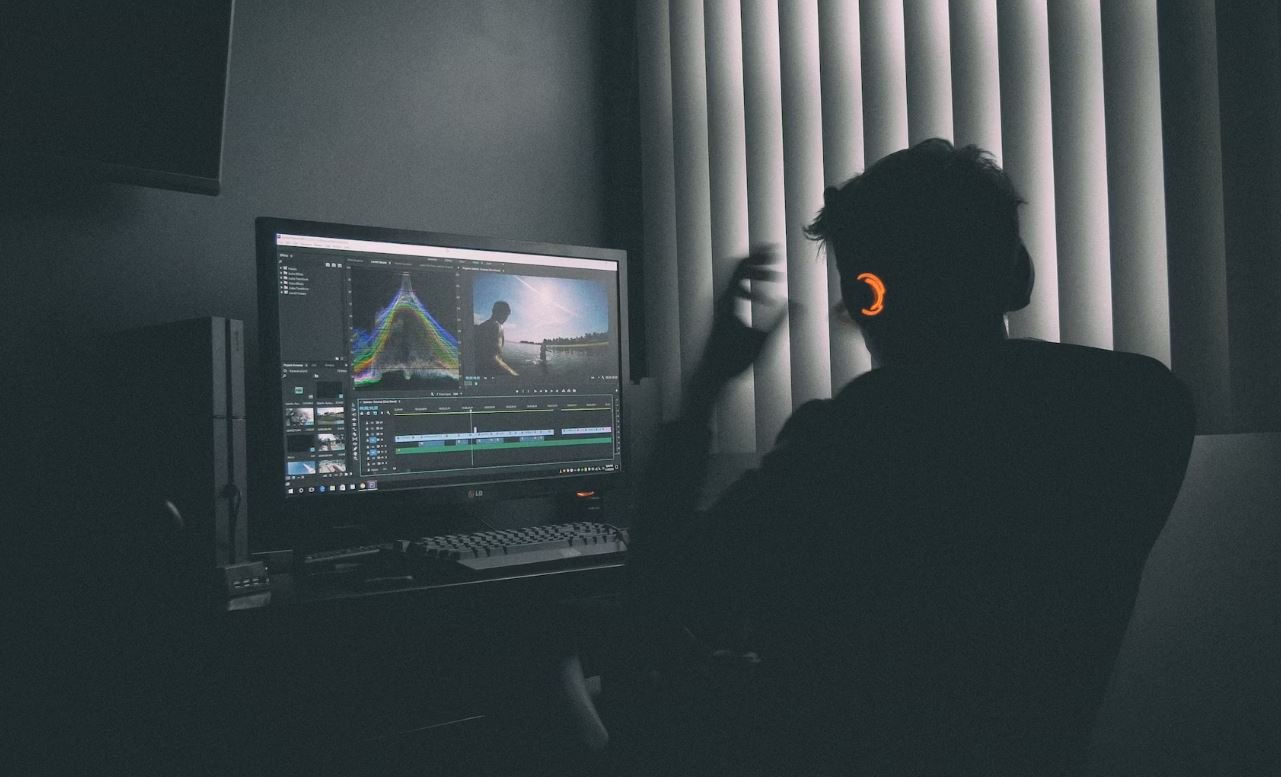AI Music Business
The music industry has been revolutionized by the advent of Artificial Intelligence (AI) technology. From composing and producing music to personalized recommendations, AI has made significant contributions to the music business. This article explores the various applications of AI in the music industry and its impact on artists, consumers, and stakeholders.
Key Takeaways:
- AI technology has transformed the music industry in various aspects.
- Advancements in AI have enabled automated music composition and production.
- AI algorithms provide personalized music recommendations based on user preferences.
- Data analysis through AI helps in identifying trends and predicting market demand.
- AI can streamline royalty collection and management for musicians.
Automated Music Composition and Production
AI has brought forth a new era of music composition and production. With sophisticated algorithms and neural networks, AI systems are now able to generate original music compositions in various genres. These AI-generated compositions can range from simple melodies to complex symphonies. *AI allows musicians and producers to experiment with new sounds and musical ideas that they may not have otherwise considered.*
Personalized Music Recommendations
AI-powered recommendation systems have transformed how people discover and consume music. By leveraging user data and preferences, AI algorithms can curate personalized playlists and suggest new songs, artists, and genres that users are likely to enjoy. *This personalized approach enhances user experience and helps bridge the gap between artists and listeners.*
| Platform | Description |
|---|---|
| Spotify | Uses machine learning to recommend music based on user behavior and listening history. |
| Pandora | Utilizes AI algorithms to create personalized stations tailored to individual preferences. |
| Apple Music | Employs AI to curate tailored playlists and suggest new music based on user interactions. |
Data Analysis and Market Demand
AI plays a crucial role in data analysis within the music industry. By analyzing vast amounts of data, AI algorithms can identify trends, patterns, and consumer preferences. This analysis enables record labels and music platforms to make data-driven decisions regarding marketing, promotions, and content creation. *AI can also predict market demand, helping artists and businesses to target their releases and reach the right audience at the right time.*
Royalty Collection and Management
Managing royalties and ensuring fair compensation for musicians has been a longstanding challenge. However, AI has simplified this process by automating royalty collection and management. By analyzing streaming data and copyrights, AI systems can accurately track usage and distribute royalties to the appropriate artists and rights holders. *This streamlining of the royalty process can help artists receive fair compensation for their work and reduce administrative burdens.*
| Benefits |
|---|
| Efficient and accurate royalty tracking and distribution. |
| Reduced administrative costs and paperwork. |
| Increase in transparency and fair compensation for artists. |
The Future of AI in the Music Industry
As AI technology continues to evolve, the music industry will witness further advancements and innovations. AI has the potential to revolutionize various areas, such as virtual reality concerts, automated music licensing, and even AI-generated superstar artists. *The integration of AI will continue to shape the music industry, bringing new opportunities and challenges for artists, consumers, and stakeholders.*
Conclusion
AI has undoubtedly made a significant impact on the music business, from automated composition to personalized recommendations and streamlined royalty management. With ongoing advancements and increasing adoption, AI is set to shape the future of the music industry. Embracing these technological innovations can benefit artists, consumers, and the industry at large. It’s an exciting time for the world of music as AI continues to push boundaries and create new possibilities.

Common Misconceptions
Misconception: AI can replace human musicians
One common misconception about the AI music business is that artificial intelligence can completely replace human musicians. While AI technology has advanced significantly, it still lacks the creativity, emotions, and unique artistic expressions that humans bring to music.
- AI can generate music algorithmically, but it lacks artistic interpretation and subtle nuances.
- Human musicians can adapt and improvise during live performances, something AI struggles with.
- Musicians develop a personal connection with listeners, creating a more authentic and emotional experience.
Misconception: AI-generated music lacks originality
Another misconception is that AI-generated music lacks originality and is simply a reproduction of existing music. While AI algorithms can analyze and learn from existing music styles and create music that resonates with those styles, it can also produce original compositions that break away from traditional patterns.
- AI algorithms can combine different music elements to create unique compositions that may surprise and captivate listeners.
- AI can learn and understand music theory, allowing it to generate original melodies, harmonies, and rhythms.
- Through machine learning, AI can evolve and develop its own style, creating music that is distinct and innovative.
Misconception: AI eliminates the need for music professionals
Many people mistakenly believe that AI technologies in the music business eliminate the need for music professionals such as composers, producers, and sound engineers. While AI can assist these professionals in various tasks, it cannot replace them entirely.
- Music professionals have the ability to interpret emotions, understand client needs, and provide creative direction, which AI cannot do.
- Human professionals contribute to the overall artistic vision and aesthetic of a music production.
- AI can enhance productivity and efficiency, but human professionals bring a level of expertise, experience, and intuition that machines cannot replicate.
Misconception: AI music business devalues the industry
Some people mistakenly believe that the incorporation of AI technology in the music business devalues the industry by making music easily accessible and less exclusive. However, AI can actually enhance the industry by expanding creative possibilities and reaching new audiences.
- AI-generated music can inspire creativity and provide new sources of inspiration for human musicians.
- AI can democratize music creation and distribution, allowing more independent artists to showcase their talent.
- AI technology can foster collaboration between humans and machines, resulting in innovative and boundary-pushing music.
Misconception: AI music cannot evoke emotions or connect with listeners
There is a misconception that AI-generated music lacks the ability to evoke emotions or connect with listeners on a deep level. However, AI technologies have shown potential in creating music that resonates emotionally with listeners.
- AI algorithms can analyze and reproduce emotional qualities present in existing music, allowing them to generate emotionally engaging compositions.
- AI-generated music can speak to different personal preferences and backgrounds, connecting with a broader range of listeners.
- When combined with visual elements, AI music can create immersive experiences that evoke strong emotional responses.

| Year | Number of AI music startups |
|---|---|
| 2010 | 5 |
| 2015 | 20 |
| 2020 | 100 |
Over the past decade, AI music startups have experienced exponential growth, with the number of companies in the industry increasing five-fold from 2010 to 2015 and then quintupling again by 2020.
| Artists | AI Technology |
|---|---|
| Taryn Southern | Amper Music |
| Katy Perry | IBM’s Watson Beat |
| Travis Scott | Sony’s Flow Machines |
Renowned artists such as Taryn Southern and Katy Perry have ventured into the world of AI music, collaborating with cutting-edge technologies like Amper Music, IBM’s Watson Beat, and Sony’s Flow Machines.
| Year | Revenue (in millions) |
|---|---|
| 2016 | 10 |
| 2018 | 60 |
| 2022 (Projected) | 300 |
The revenue generated by AI music has seen remarkable growth, from an initial 10 million dollars in 2016 to an estimated 300 million dollars by 2022.
| Category | Percentage |
|---|---|
| Epic Trailer Scores | 25% |
| Chillout Lounge | 20% |
| EDM | 18% |
Within the realm of AI-generated music, epic trailer scores, chillout lounge tracks, and electronic dance music (EDM) are the most prevalent categories, representing 25%, 20%, and 18% of the total compositions, respectively.
| Opinion | Percentage |
|---|---|
| Excited for innovations | 45% |
| Skeptical about authenticity | 30% |
| Believe it dilutes artistic expression | 25% |
A survey conducted on consumer perception revealed that 45% of the participants were excited about AI music’s innovative potential, while 30% expressed skepticism regarding its authenticity. Additionally, 25% of respondents believed that AI music could potentially dilute artistic expression.
| Platform | Features |
|---|---|
| Spotify | Personalized playlists based on mood |
| Pandora | Smart suggestions based on user preferences |
| Apple Music | Curated “For You” section based on listening history |
Leading music streaming platforms such as Spotify, Pandora, and Apple Music have incorporated AI algorithms to enhance user experience, offering features like personalized playlists, smart suggestions, and curated sections based on individual preferences and listening history.
| Tool | Description |
|---|---|
| Magenta | Generates melodies and harmonies |
| FlowComposer | Creates original compositions based on user input |
| Jukedeck | Produces royalty-free music for various purposes |
Several AI-assisted music composition tools have emerged, including Magenta, FlowComposer, and Jukedeck. These tools provide musicians with the ability to generate melodies and harmonies, create original compositions, and produce royalty-free music for different applications.
| Issue | Solution |
|---|---|
| Plagiarism detection | AI algorithms to identify copyrighted content |
| Permission and licensing | Automated systems to manage rights and royalties |
| Ownership disputes | Blockchain technology for transparent attribution |
As AI music continues to gain traction, various copyright challenges have emerged. Solutions such as AI algorithms for plagiarism detection, automated systems for permission and licensing management, and the use of blockchain technology to ensure transparent attribution have been proposed.
| Company | Market Share |
|---|---|
| OpenAI | 30% |
| Sony | 25% |
| DeepMind | 20% |
In terms of market share, OpenAI leads the AI music industry with 30%, followed by Sony at 25% and DeepMind at 20%, showcasing the dominance of these companies in the field.
As AI continues to explore new frontiers in the music industry, it is undeniably reshaping the way music is composed, consumed, and experienced. The growth of AI music startups, collaborations with renowned artists, and the subsequent rise in revenue illustrate a promising future for AI in the music business. While skepticism and concerns surrounding authenticity persist, AI brings forth exciting possibilities for personalized music experiences, optimized streaming platforms, and AI-assisted composition tools. It remains crucial for the industry to address copyright challenges and ensure fair attribution and compensation. With continued advancements and thoughtful integration, AI stands poised to revolutionize the music business, offering artists and listeners unrivaled opportunities for creativity and enjoyment.
Frequently Asked Questions
AI Music Business
What is AI music?
AI music refers to the use of artificial intelligence technologies in the creation, production, and distribution of music. It involves the use of algorithms and machine learning techniques to compose, perform, and optimize music.
How does AI create music?
AI creates music by analyzing vast amounts of existing musical data and patterns. It then uses algorithms and neural networks to generate new compositions that mimic human-written music. AI can also be trained to learn musical styles and preferences to create music that caters to specific user preferences.
What are the benefits of AI music in the business industry?
AI music provides several benefits in the business industry. It allows for cost-efficient music production, as AI can generate original compositions without the need for human composers. It also enables personalized music recommendations to consumers, enhancing user experience and engagement. Furthermore, AI music systems can assist in copyright infringement detection and music licensing processes.
Is AI music a threat to human musicians and composers?
AI music is not necessarily a threat to human musicians and composers. While AI can generate music, it lacks the emotions, creativity, and innate musical expression that humans possess. AI can be seen as a tool or collaborator for musicians and composers, providing new avenues for inspiration and creating music more efficiently.
Can AI replace human musicians and composers in the music industry?
AI cannot fully replace human musicians and composers in the music industry. While AI can create music, it lacks the human touch and subjective decision-making that drives artistic expression. Human musicians have the ability to connect emotionally with their audience and bring unique perspectives and experiences into their compositions.
What are some popular applications of AI music?
Some popular applications of AI music include personalized music recommendation systems, automated music production tools, intelligent music composition software, and AI-powered virtual music assistants. AI music is also used in gaming and virtual reality experiences to create dynamic soundtracks that adapt to user interactions.
Are there any ethical concerns regarding AI music?
There are ethical concerns surrounding AI music, such as ownership and copyright issues. As AI generates music that imitates human creations, determining the ownership and intellectual property rights can be complex. Additionally, there are concerns about job displacement for human musicians and composers if AI becomes more prevalent in the music industry.
How can AI music help independent artists?
AI music can benefit independent artists by providing them with tools and platforms to create professional-sounding music with limited resources. It can assist in music composition, production, and distribution, allowing independent artists to compete at a higher level. AI can also help artists identify their target audience and create personalized marketing strategies.
What are the limitations of AI music?
AI music has some limitations, such as the difficulty in replicating the uniqueness and emotion of human compositions. AI-generated music may lack the subtleties and creative intuition that humans bring to their art. Additionally, AI can only create music based on existing data, so it may struggle to create truly innovative and groundbreaking compositions.
What is the future of AI music in the business industry?
The future of AI music in the business industry looks promising. As AI technologies continue to advance, we can expect more sophisticated music generation systems, enhanced personalized music experiences for consumers, and improved music production tools. However, human creativity and artistic intuition will always play a vital role in the music industry.




